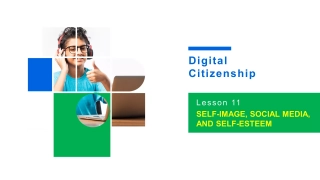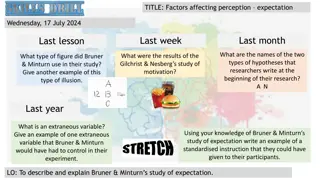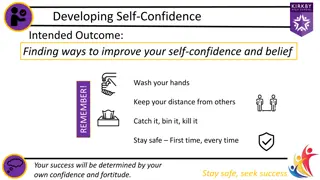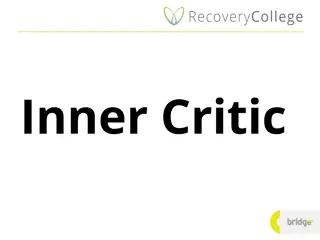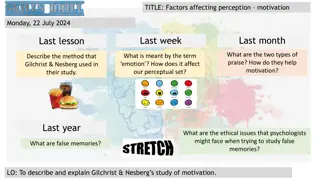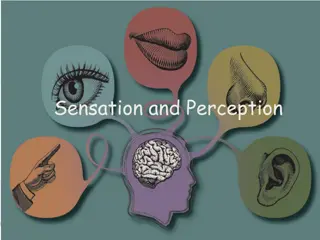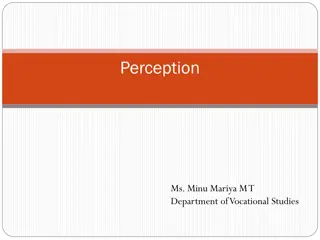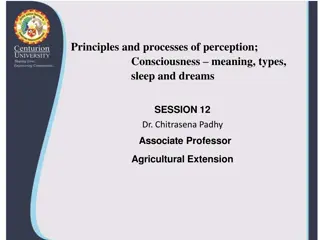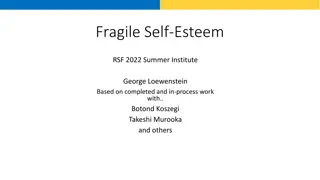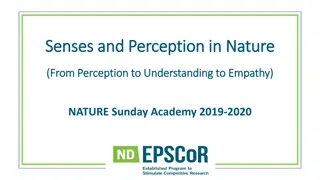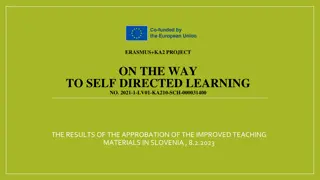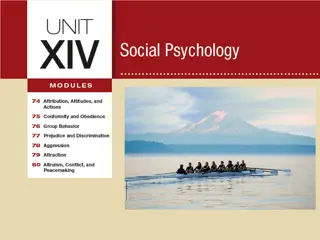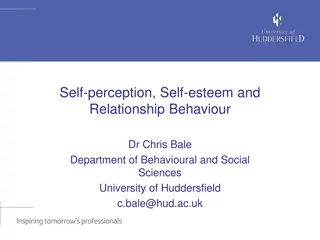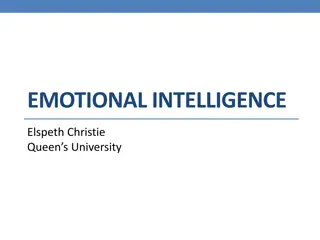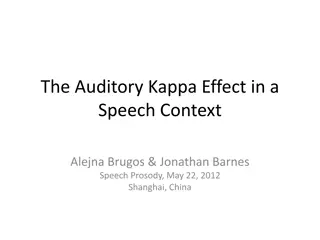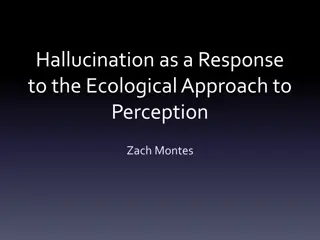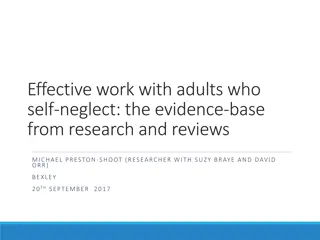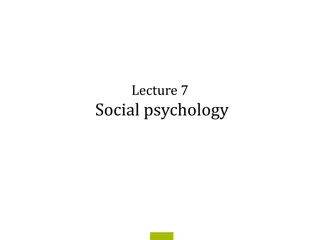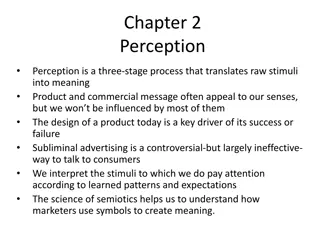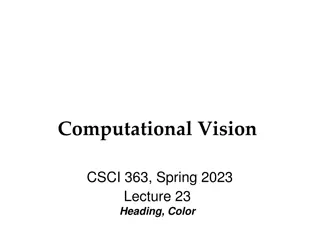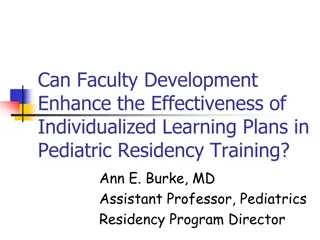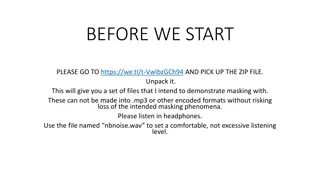Digital Citizenship: Self-Image, Social Media, and Self-Esteem
Explore the impact of social media on self-image and self-esteem. Learn about the influence of filters and media on body perception. Reflect on self-assessment and take-home activities to improve self-confidence.
3 views • 11 slides
Understanding Self-Worth in Children: Building a Strong Foundation
Explore the importance of self-concept, self-esteem, and self-worth in children's development. Learn how parents can positively impact a child's self-perception and self-value through nurturing experiences. Discover the key sources influencing children's self-worth and the critical role of early lif
0 views • 30 slides
Understanding Self-Esteem: Meaning, Importance, and Types
Self-esteem is how we perceive our worth and value. High self-esteem leads to confidence and positivity, while low self-esteem can result in self-doubt and negative emotions. Self-esteem impacts mental health, behavior, decisions, relationships, and overall success in life. Recognizing and nurturing
2 views • 15 slides
Understanding Self-Esteem and Ways to Improve It
Self-esteem is our perception of ourselves, impacting how we navigate life. Healthy self-esteem fosters positivity, while low self-esteem can be detrimental. Various factors, like childhood experiences, contribute to low self-esteem, but steps can be taken to improve it. Building positive relationsh
0 views • 14 slides
Understanding the Self: Psychology's Focus and Implications
The field of psychology has long been intrigued by the concept of self, exploring its importance to well-being, self-esteem, and brain localization. Research reveals how excessive optimism, self-bias, and blindness to incompetence can impact self-esteem. Contrasting individualist and collectivist cu
1 views • 41 slides
Understanding the Physiology of the Sensory Organ - Tongue by B.K. Singh
Taste perception on the tongue is a vital sensory function involving sweet, sour, salty, and bitter sensations. The tongue, with its muscular movements and taste buds, plays a crucial role in mastication, swallowing, and food enjoyment. Different types of papillae on the tongue are responsible for t
4 views • 33 slides
Understanding Perception in Nyaya Philosophy: An Introduction to Laukika Sannikara
Nyaya philosophy defines perception as knowledge arising from the contact between a sense organ and its object, known as Sannikara. This contact can be direct or indirect, leading to various kinds of Sannikaras such as Sayoga, Sayokta-samavya, Samaveta-samavya, Samavya, and Viśeṣa-viśeṣabhāva
2 views • 10 slides
Factors Affecting Perception Expectation
This content covers various aspects related to perception and expectation, including the types of hypotheses in research, results of different studies on motivation and perception, examples of extraneous variables, standardized instructions in experiments, and evaluation of research methods. The stu
1 views • 9 slides
Building Self-Confidence: Key Steps and Benefits
Understanding self-confidence, its importance, and how to develop it can lead to enhanced resilience, motivation, reduced fear and anxiety, and a stronger sense of self. Self-confidence allows for confident behavior, while lack of it can lead to self-doubt and avoidance of risks. Learning to embrace
0 views • 7 slides
Understanding Your Inner Critic and Building Self-Compassion
Explore the concept of the Inner Critic, its impact on self-perception, and practical strategies to develop self-compassion. Learn to identify critical self-talk, differentiate between the inner critic and your true self, and cultivate a positive internal dialogue to counter negativity effectively.
0 views • 9 slides
Developing a Self-Care Action Plan for Overall Well-Being
Self-care involves deliberate activities to nurture mental, emotional, physical, and spiritual health, yet it is often neglected. This guide explores the essence of self-care, emphasizes the importance of building a personalized self-care action plan, and provides insights into taking care of your b
0 views • 19 slides
Factors Affecting Perception and Motivation Study
Factors such as hunger can influence perception and motivation, as shown in the study by Gilchrist & Nesberg. Their research involved university students who went without food for 20 hours and were tested on how hunger affected their perception of brightness in images. The results indicated that mot
1 views • 11 slides
Understanding Sensation and Perception in Psychology
Sensation and perception play crucial roles in how we experience the world around us. Sensation involves the detection of stimuli through sensory organs, while perception involves the interpretation of these stimuli in the brain. The process includes transduction, where physical energy is converted
1 views • 19 slides
Understanding Perception in Organizational Behavior
Perception, as the process of interpreting sensory information, plays a crucial role in individual behavior within organizations. This article delves into the basics of perception, highlighting its impact on how individuals view reality, receive information, and make interpretations. It also explore
1 views • 14 slides
Understanding Sensation and Perception in Psychology
Explore the fascinating world of sensation and perception in psychology, where we delve into how our senses interact with stimuli to create our conscious experiences. Sensation involves the activation of our sense organs by external stimuli, while perception refers to the interpretation of those sti
3 views • 19 slides
Carl Rogers and the Self-Concept Theory
Carl Rogers, a prominent figure in personality theory, emphasized individuals' constructive potential and the impact of their subjective experiences on personality development. He viewed individuals as goal-directed and capable of change, with the environment playing a facilitating or inhibiting rol
1 views • 78 slides
Understanding Sensation and Perception in Psychology
Sensation and perception play crucial roles in how we interpret the world around us. Sensation is the process by which stimuli trigger our sensory receptors, while perception involves organizing and interpreting sensory information. This chapter delves into thresholds, sensory differences, Weber's L
0 views • 52 slides
Enhancing Self-Confidence for Professional Success
Understanding the importance of self-confidence in the workplace is crucial for personal growth and career advancement. Self-confident individuals trust their abilities, maintain a sense of control over their lives, and have realistic expectations. This summary delves into the characteristics of sel
0 views • 13 slides
Principles and Processes of Perception: Understanding Consciousness and Patterns
Perception involves the complex processes of sensation, interpretation, and past experiences shaping our understanding of the world. Gestalt theories highlight pattern perception, while perceptual hypotheses influence our perception accuracy. The perception process entails selecting, organizing, and
0 views • 12 slides
Charles Horton Cooley - Sociologist and Creator of the Looking Glass Self
Charles Horton Cooley, an American sociologist associated with the University of Michigan, is best known for his concept of the looking-glass self. Cooley's major works span topics like social change, human nature, and social consciousness. His Looking Glass Self theory explores how individuals form
1 views • 18 slides
Fragile Self-Esteem: Exploring Connections Between Psychology and Economics
Fragile self-esteem is a common but complex phenomenon that impacts individuals' emotions and behaviors. This paper delves into the interplay between psychology and economics to understand the implications of high-but-fragile self-esteem, especially in terms of insecurity and narcissistic traits. Dr
0 views • 27 slides
Enhancing Self-Regulation for Formative Assessment through Social and Emotional Learning
Explore the significance of self-regulation in formative assessment, understand key concepts like self-control, emotional competence, and perseverance. Discover actionable strategies to implement self-regulation interventions with students and train other adults effectively. Future orientation and s
0 views • 25 slides
Understanding Mindful Self-Judgment and Its Role in Mental Health
Mindful self-judgment is a complex concept that involves balancing self-awareness and self-compassion. While nonjudgment is a key aspect of mindfulness practices, there is a debate on whether mindful self-judgment can be appropriate and functional in certain circumstances. Researchers like June Pric
2 views • 46 slides
Understanding Sensory Perception in Nature
Sensory perception in nature explores the diverse ways organisms detect stimuli, encompassing traditional senses like sight and touch, as well as lesser-known senses such as thermoception and proprioception. Other organisms, including animals and plants, exhibit unique sensory abilities that aid in
0 views • 14 slides
Study on Self-Directed Learning - Student Perception and Material Evaluation in Slovenia
This Erasmus+ KA2 project studied the student perception and evaluation of improved teaching materials in Slovenia. 51 students from the Primary School of Livada participated in the project, with findings on the sufficiency, clarity, and ease of understanding of the materials provided. The results s
0 views • 15 slides
Understanding Self-Esteem: Highs and Lows
Self-esteem is the judgment we hold about ourselves, shaped by experiences and relationships. High self-esteem individuals embrace new encounters with confidence and positivity, while low self-esteem individuals struggle with self-doubt and criticism. Recognizing signs of low self-esteem is crucial
0 views • 11 slides
Analyzing Mood and Perception in Literary Works
Analyzing the establishment of mood and changes in perception in different literary works. The author uses details from the passages to explain the mood set through descriptions, perception changes, and the use of sound. Explore how characters' feelings evolve over time.
0 views • 9 slides
Understanding Attraction and the Mere Exposure Effect
Explore the dynamics of attraction and romantic love, delving into why we are drawn to certain individuals and how familiarity influences our feelings. Uncover key factors such as proximity, attractiveness, and similarity, along with the intriguing concept of the mere exposure effect, which elucidat
0 views • 37 slides
Boosting Your Child's Self-Esteem & Confidence in Parenting Workshop Series
Understanding self-esteem in children is crucial for their emotional development. Healthy self-esteem leads to positive behaviors, while low self-esteem can result in negative self-perceptions. Recognizing signs of healthy and unhealthy self-esteem allows parents to support and nurture their child's
0 views • 11 slides
Understanding Self-Perception, Self-Esteem, and Relationship Behavior
The discussion explores the impact of low self-esteem on various psychological issues, societal views on self-worth, self-perception biases, and the consequences of self-esteem in different aspects of life, backed by research and theories such as the Better-Than-Average Effect and Sociometer Theory.
0 views • 19 slides
Understanding Emotional Intelligence and its Components
Emotional Intelligence is about identifying, understanding, and managing emotions, recognizing your own needs and those of others, and enhancing interpersonal skills. It involves self-perception, self-expression, and affects decision-making and stress management. People with high emotional intellige
0 views • 20 slides
Exploring the Auditory Kappa Effect in Speech Perception
The auditory kappa effect, originally observed in non-speech contexts, is investigated in speech perception. This study explores how pitch and timing interactions influence the perception of vowel duration and silent intervals in spoken words. Using the kappa cell paradigm, experiments examine the r
0 views • 42 slides
Understanding Hallucinations through Ecological Perception and Neurological Evidence
Exploring the phenomenon of hallucinations in relation to the ecological approach to perception, direct vs. indirect realism, and the concept of affordances in visual perception. Delving into the types of hallucinations, such as visual and complex hallucinations, and conditions like Charles Bonnet S
1 views • 16 slides
Understanding Self-Neglect in Adults: Challenges and Research Insights
This content delves into the complex issue of self-neglect in adults, covering its definition, key challenges, and the research evidence available. It explores the various aspects of self-neglect, including neglect of self-care, domestic environment, and refusal of services. The challenges associate
0 views • 39 slides
Understanding the Self in Social Psychology
Delve into the concept of the individual and the self in social psychology, exploring how identities have evolved historically and the distinction between collective and individual selves. Learn about self-awareness, Wundt's differentiation of I and me, and Higgins' self-discrepancy theory, shedding
0 views • 84 slides
Understanding the Three-Stage Process of Perception
Perception is a complex three-stage process that involves translating raw stimuli into meaning. This process includes sensation, where sensory receptors respond to stimuli, and perception, where sensations are organized and interpreted. Marketers leverage sensory cues such as colors, sounds, and odo
0 views • 8 slides
Understanding Computational Vision and Color Perception
Explore the role of MST in heading computation, the influence of eye movements on MSTd cells, and how light wavelengths and color perception are intertwined. Discover the complexities of neural processing in color perception and how it shapes our visual experiences.
0 views • 28 slides
Enhancing Individualized Learning Plans in Pediatric Residency Training
The study focuses on whether faculty development intervention can enhance the effectiveness of Individualized Learning Plans (ILPs) in pediatric residency training. It aims to improve faculty and trainee experiences with ILPs, including increasing faculty perception of ILP importance, self-directed
0 views • 16 slides
Boosting Self-Esteem: Benefits and Tips for Improvement
Understanding self-esteem, its benefits, and risks of low self-esteem are essential for personal growth. Developing high self-esteem can lead to increased self-respect, goal achievement, and willingness to try new things. On the other hand, low self-esteem can make individuals vulnerable to peer pre
0 views • 10 slides
Understanding Masking and Partial Loudness in Sound Perception
Masking in sound perception involves the phenomenon where changes in total loudness do not occur despite adding or removing signals, due to partial loudness variations across frequencies. This concept is crucial for comprehending how we perceive sound and the limitations of our auditory system, part
0 views • 31 slides
